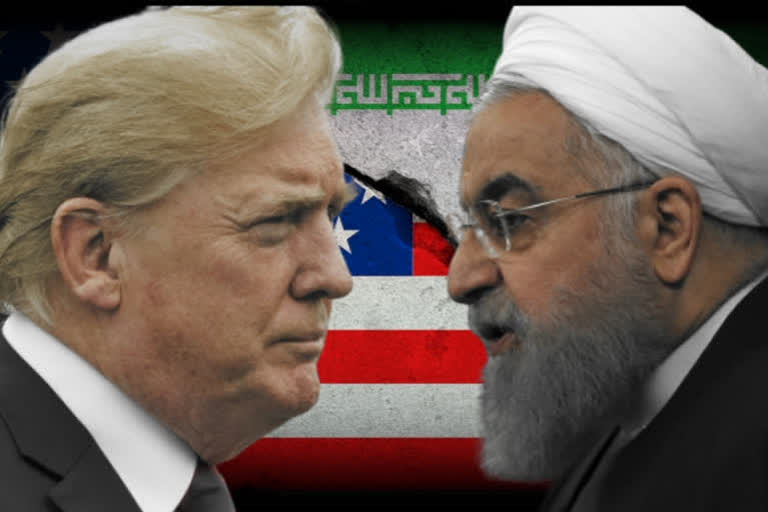New Delhi: The world heaved a sigh of collective relief as a major crisis that had the potential of triggering an armed conflict, serious disruption in petroleum supplies and a global economic slowdown was averted, in less than a week, due to some deft diplomatic footwork by Tehran and a matching response by the US President Donald Trump.
Within minutes of President Trump's conciliatory address in the evening of January 8th (IST) in which he called upon the Iranian people and leadership to engage in a peaceful dialogue, the oil prices began to drop and the stock market surged.
However, this could merely be a temporary respite. By firing over a dozen ballistic missiles at two American bases in Iraq, Iran demonstrated its capability of retribution, yet not wanting to stir the pot for the time being, may have opted to exact it at a later date.
The hostility between the 'Great Satan' and the clerical regime of Tehran (dubbed as a part of the by President George Bush) flared up once again on 3rd January, when a US drone strike assassinated Major General Qasem Soleimani, head of the Quds Force, an elite unit of the Iranian Revolutionary Guard Corps (IRGC). It plunged the entire region into uncertainty, anxiety and a danger of conflict.
Led by the austere and stern Supreme Leader Ayatollah Ruhollah Khomeini the Islamic regime assumed power in February 1979 upon the abdication of the Shah of Iran. In November 1979, radical students laid siege to the US Embassy in Tehran keeping 52 diplomats and personnel in confinement for 444 days. Ever since Washington and Tehran have had a turbulent relationship.
The US did its best to undermine the Islamic regime. During the 1980-88 Iran-Iraq war, Washington liberally supported Saddam Husain with funds, training and weaponry (officially denied). The traditional friendship between the US and the Sunni Saudi Arabia, Iran's adversary and the latter's deep-seated hostility towards Israel, further complicated the US-Iran ties. It did not help that Iranian leaders like President Mahmoud Ahmadinejad described Israel as a "disgraceful blot" that should be "wiped off the face of the earth".
Furthermore, to ward off perceived external threats, Iran embarked upon a secret programme to develop a nuke. Pakistan provided it sensitive nuclear know-how and equipment for uranium enrichment. To thwart its nuclear ambitions, the US and the United Nations (UN) imposed a series of debilitating sanctions.
A breakthrough was finally achieved with the conclusion of Joint Comprehensive Plan of Action (JCPOA) in July 2015 (between Iran and five permanent members of UNSC plus Germany) under which Tehran agreed to eliminate its stock of medium-enriched uranium and severely restrict that of low-enriched uranium as also centrifuges, for a period of 15 years. The Agreement was hailed the world over.
